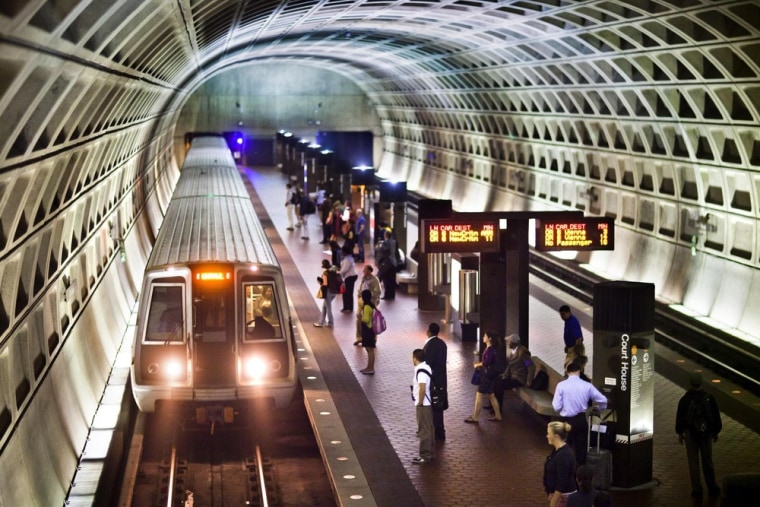It may not seem like there are fewer traffic jams, and the gas station probably looks busier than ever every time you stop to fill up.
But a new study shows that Americans are actually driving less. We're seeing a steady shift in how people get around, with more people leaving their keys at home and finding other ways to get around.
"This is an important change," said Michael Sivak, who conducted the study at the University of Michigan Transportation Research Institute. "This is the first time we've ever seen a drop like this."
(Read more: Teen drivers nearly double car insurance premiums)
According to the study, driving in the U.S. reached a peak in 2004 and has been declining steadily ever since.
"When you look at the distance-driven rate, we are where we were back in the mid-90s," Sivak said.
In 2011, the most recent year for which data are available, the average licensed driver racked up 12,492 miles behind the wheel. That's down 1,221 miles, or 8.9 percent, from the peak seven years earlier.
(Read more: Auto job boom rolls on as Ford expands)
The fact that the number of miles driven began falling four years before the recession indicates that people changed their driving habits for reasons that go beyond saving money, Sivak said.
Though the recession and slow recovery contributed to people cutting back on driving—or cutting it out altogether—the study pointed to four other reasons we're getting out of cars and trucks.
"The trends in these underlying factors suggests a major societal change with respect to personal transportation," Sivak said.
1) Telecommuting and improved telecommunications
More people are working from home or attending meetings via Skype and other new technologies. As telecommunication becomes more sophisticated and reliable, more people are realizing they don't need to hit the road.
2)Increased use of public transportation
More people are taking trains, buses, subways, and ferries. While that's partly because there are more options available, many find that public transit is more economical than owning and maintaining a vehicle.
3)The urbanization boom
More people are moving into or near cities where they have greater access to public transportation for work as well as recreation.
4)The nation is aging, and older people drive less
As more baby boomers retire, fewer members of that generation go to work every day. In addition, studies show that people drive less as they get older.
No license? No problem
Over the last decade, auto executives have been trying to solve a problem few ever thought they would confront. Teens, even young people in their 20s and 30s, have decided they don't want a driver's license, let alone a car.
While that may sound puzzling to the millions who remember the excitement of turning 16 and getting their license, researchers said there has been a fundamental shift in young people's attitudes.
Now, nine years after we reached a peak in miles driven, some wonder if a country defined by the automobile in the last century is on a different road.
The economic implications could be enormous.
(Read more: New study sounds alarm about distracted driving)
What will happen to auto sales in the future? Will gas tax revenue, the primary source of funding to maintain roads and bridges, start to decline? Are government leaders, from the federal to the local level, prepared to spend more money on building and maintaining public transportation?
More business news:
- Modesty please! Cover up those sexy magazine covers
- Judge: Fed chair Bernanke should be deposed in AIG bailout case
- Fast food workers striker for higher wages
Follow NBCNews.com business onTwitter and Facebook
